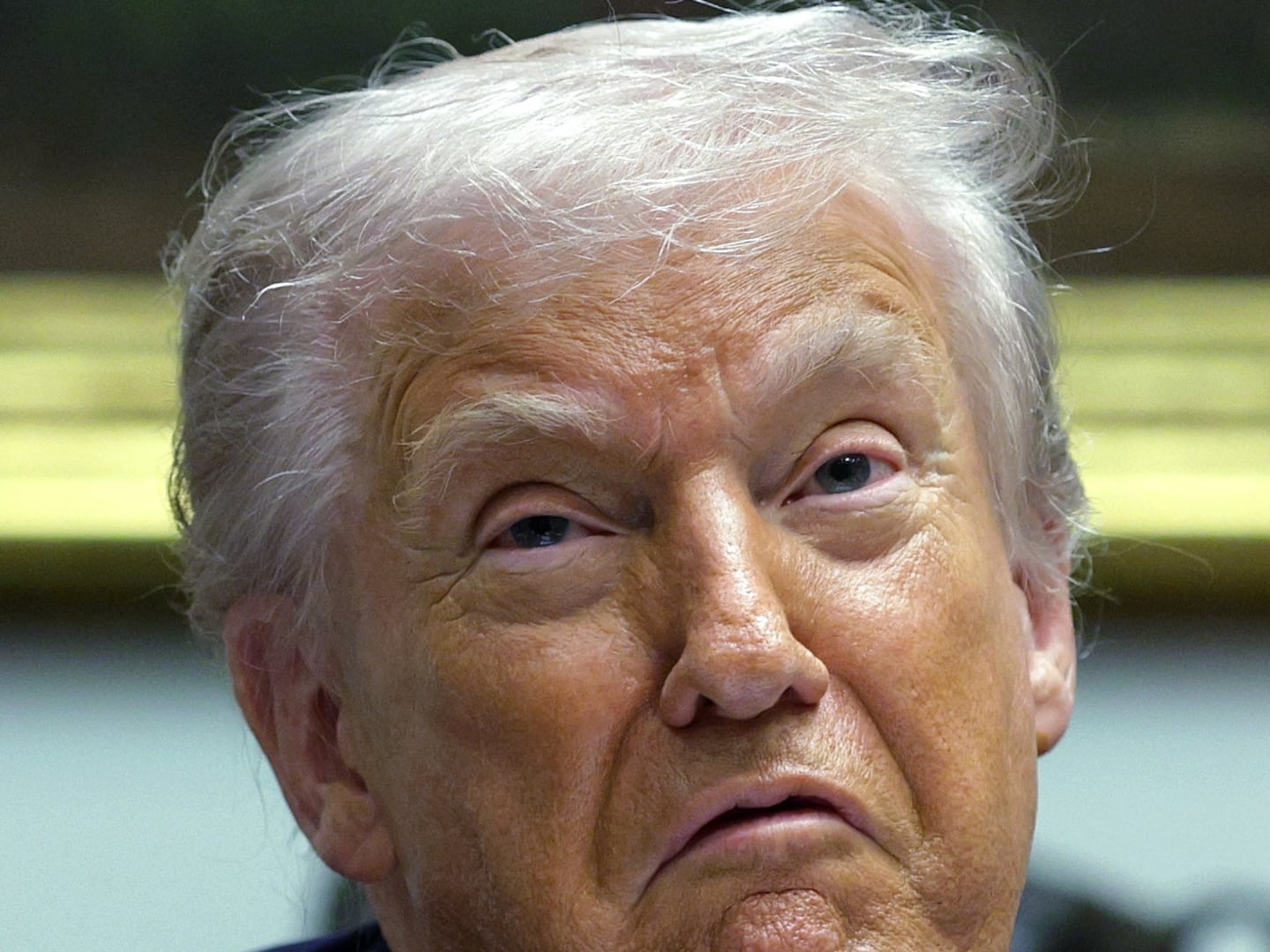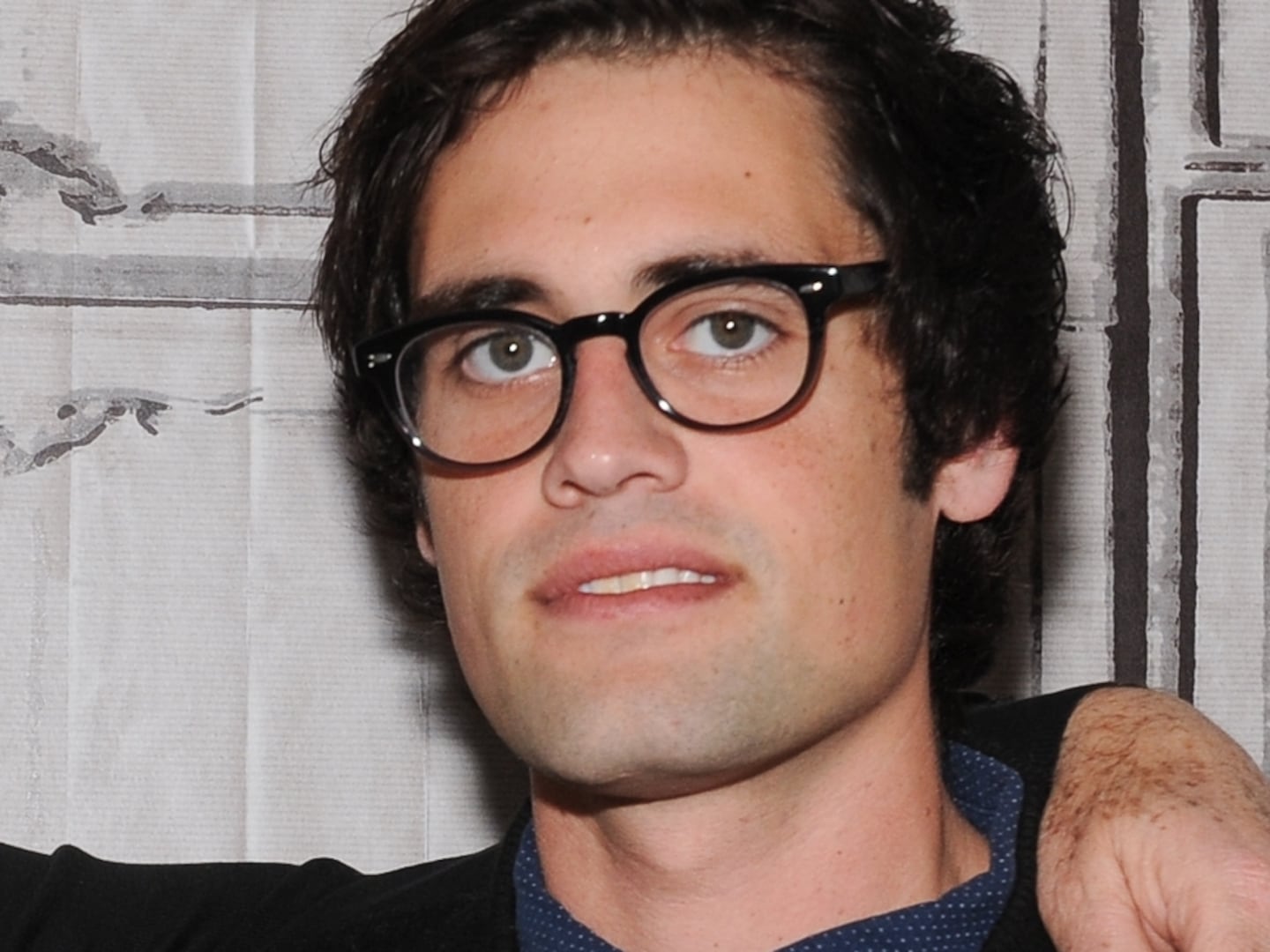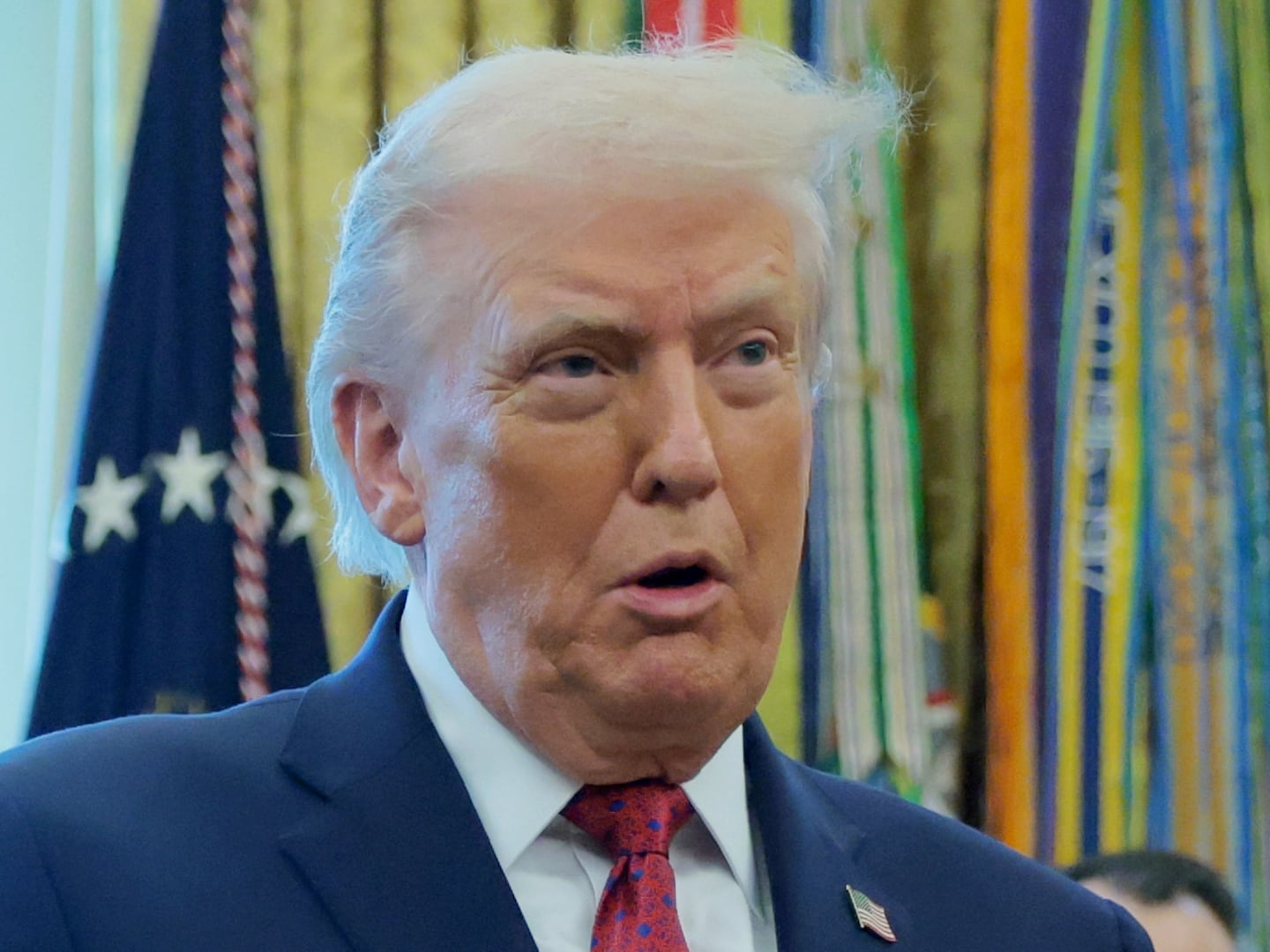You see, Good Morning America host George Stephanopoulos was just too darned generous to poor kids and AIDS victims.
In a non-apology apology that is unlikely to appease the referees of press ethics, let alone his Republican detractors—and may just baffle morning television viewers who haven’t paid attention to the blossoming scandal within the media-political complex—the former top aide to Bill and Hillary Clinton put the very best face possible on his lapse in judgment in not disclosing $75,000 in donations to the Clinton Foundation when he conducted a contentious April 26 interview with foundation critic Peter Schweizer on This Week With George Stephanopoulos, ABC News’s Sunday show.
Although Stephanopoulos’s case is very different from—and nowhere near as serious as—the embellishments of suspended NBC Nightly News anchor Brian Williams, his explanation of his mistake on Friday morning was much in the same vein as Williams’s claim last February that he made up a story about a helicopter ride in Iraq simply in an innocent, good-hearted attempt to honor America’s fighting men and women.
Willams wrapped himself in the flag; Stephanopoulos cloaked himself in charity.
His 48-second statement, which he read near the end of GMA’s first block, went as follows: “Now I want to address an issue you may have seen about me. Over the last several years, I’ve made substantial donations to dozens of charities, including the Clinton Global Foundation. Those donations were a matter of public record, but I should have made additional disclosures on air when I covered the foundation, and I now believe that directing personal donations to that foundation was a mistake. Even though I made them strictly to support work done to stop the spread of AIDS, help children, and protect the environment in poor countries, I should have gone the extra mile to avoid even the appearance of a conflict. I apologize to all of you for failing to do that.”
It is hard to argue that asking tough questions of a charity’s critic on the air—as Stephanopoulos did last month with Schweizer, whose much-publicized book Clinton Cash has been the target of war room-level pushback from Hillary Clinton’s presidential campaign—without bothering to mention that you’ve donated to that charity, is anything other than a serious breach of accepted journalistic standards. Or that letting viewers know about such a potential conflict of interest is “going the extra mile.”
Apparently Stephanopoulos still fails to grasp that there is nothing “extra” about what should have been a common-sense disclosure. What’s more, on GMA Friday morning, he didn’t see fit to mention the sheer size of his donations; no doubt many of his viewers would consider $75,000 real money, even for a television personality reportedly making double-digit millions.
Even Stephanopoulos unwittingly acknowledged the bad appearance of things during an April 28 appearance on The Daily Show, two days after his Schweizer confrontation. He told Comedy Central’s Jon Stewart: “I read the book that this is based on, Clinton Cash, and I actually interviewed the author on Sunday. This is a tough one, because when you actually look, look closely at it, he even says there is no evidence of any direct action taken on behalf of the donors. But everybody also knows when those donors give that money—and President Clinton or someone, they get a picture with him—there’s a hope that it’s going to lead to something. And that’s what you have to be careful of.”
When Stewart pointed out that “the entire system appears to be shrouded in that type of quid pro quo, or the appearance of it,” Stephanopoulos agreed, saying: “Even if you don’t get an action, what you get is access and you get the influence that comes with access and that’s gotta shape the thinking of politicians. That’s what’s so pernicious about it.”
Could Stephanopoulos, who is also ABC News’s chief anchor and political correspondent, be hoping for access to and exclusives from Bill and Hillary, giving him a competitive edge during the 2016 presidential campaign?
It’s a fair question. Even if Stephanopoulos never discussed his contributions to their foundation with the Clintons, as appears to be the case, the Clintons are undoubtedly aware of them. Like all successful politicians, they have a keen eye for, and a long memory of, people who give and don’t give them money.
So if Stephanopoulos really wants to put this issue to rest—and I think he can—he’s going to have to do better than the once-over-lightly treatment he accorded it Friday morning. A “modified limited hangout”—to use Nixon aide John Ehrlichman’s phrase during the Watergate adventure—just won’t do in this case.






